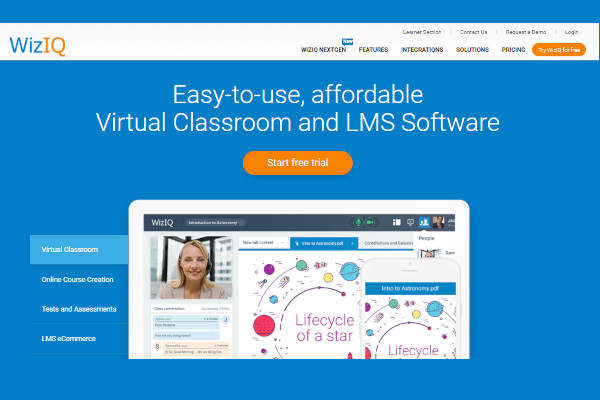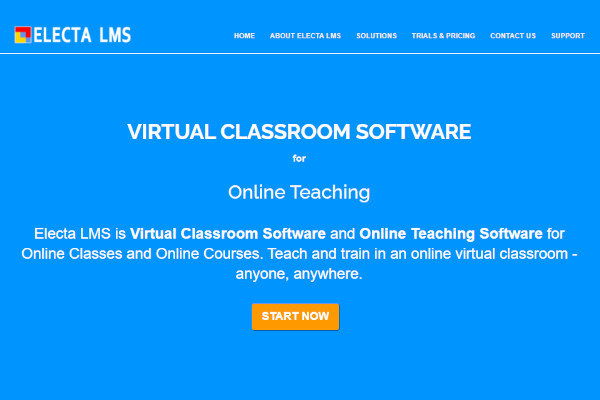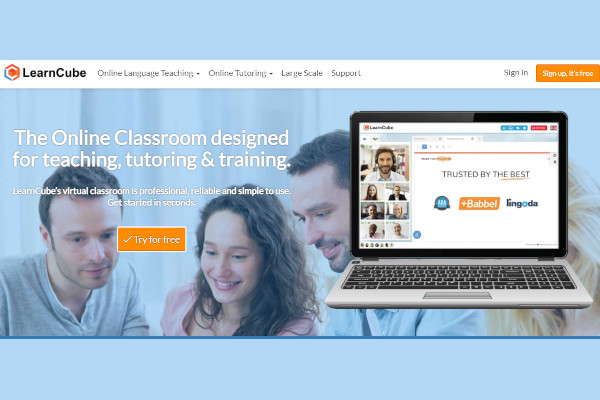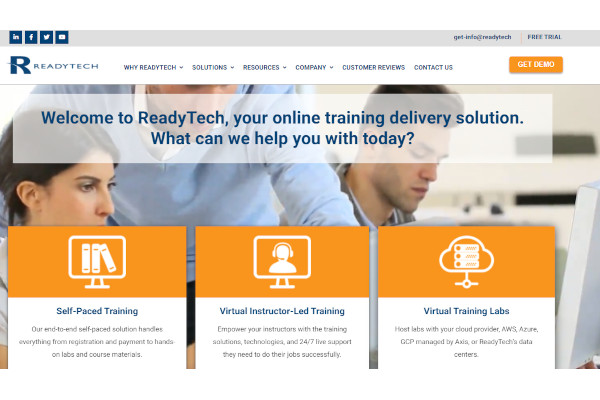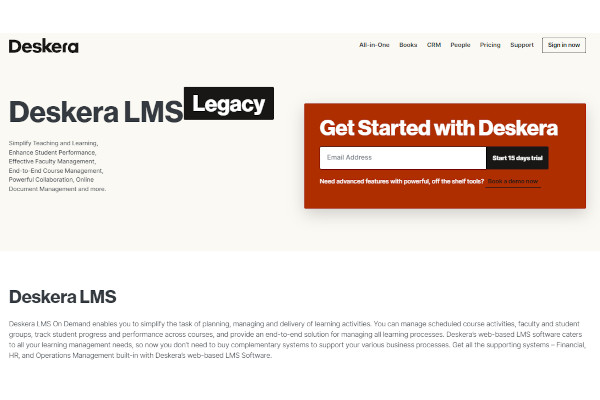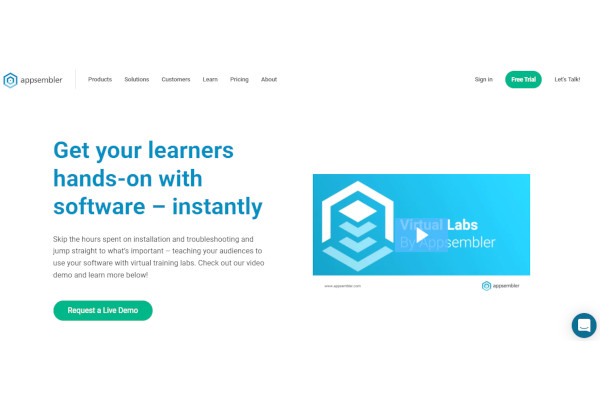Professionals did not reach that position without training. Training helps people gain knowledge of their chosen field and generate ideas on how to deal with their tasks when their work starts. However, a pandemic happened, leading to training programs to dismiss due to quarantine arrangements. For this reason, the professional industry uses virtual training software.
10+ Best Virtual Training Software
1. Talentlms
2. WizIQ
3. Electa LMS
4. Lessonly
5. LearnCube
6. ReadyTech LMS
7. PTminder
8. Tableau
9. Deskera LMS
10. Virtual Labs by Appsembler
11. ON24
What is Virtual Training Software?
Virtual training software is a technological tool most industries use nowadays to execute class and training programs digitally as it allows educators to train and lecture their audiences to discuss live on screen. There are freelancers and work-from-home employees scattered across the country who are unable to attend face-to-face sessions. For this reason, virtual training software is essential as it provides advanced features and functionalities, allowing end-users to communicate and collaborate within a single platform online. It enables appointment scheduling, data integration, presentation charts, cloud file storage, etc.
Benefits
Transparently, virtual training software offers multiple benefits and advantages to training programs. This virtual class software enables training programs to run online, making it more convenient for professors and students. It gives access to coursework anytime and anywhere, effective time management, expanded worldview, immediate feedback, sharpened digital skills, and the overall effective curriculum.
Features
Several technology companies have created virtual training software with comparable and dissimilar features and functionalities that you may or may not like. These two factors are the mechanics of the software that determines their quality. Although the software is innovative, you can’t deny that not all platforms have high-quality performance. For this reason, it is essential to research the software’s capabilities to evaluate its characteristics and make sure you choose the best software for your company. The following are features you might need to include:
- Academic/Education
- Activity Dashboard
- Adaptive Learning
- Asynchronous Learning
- Blended Learning
- Built-in Course Authoring
- Learner Portal
- Learning Management
- Skills Tracking
- Social Learning
- Video Conferencing
Top 10 Virtual Traning Software
1. Tableau
Tableau from Salesforce includes ad hoc reporting, customer journey mapping, KPI monitoring, predictive analytics, data management, and more valuable features. Salesforce has annual revenue of $13.6 billion and 68,096 employees.
2. PTminder
PTminder from Xplor Technologies includes event management, fitness assessments, nutrition program, marketing automation, and more advanced features. Xplor Technologies has annual revenue of $53.5 million and 328 employees.
3. WizIQ
WizIQ includes attendance tracking, session recording, LMS integration, file sharing, document management, and more valuable features. WizIQ has annual revenue of $44 million and 300 employees.
4. Lessonly
Lessonly includes content management, asynchronous learning, training management, employee training, learner portal, and more helpful features. Lessnly has annual revenue of $36.6 million and 235 employees.
5. ReadyTech LMS
ReadyTech LMS includes blended learning, learner portal, synchronous learning, eCommerce management, corporate/business, and more logical features. ReadyTech has annual revenue of $30.6 million and 192 employees.
6. Deskera LMS
Deskera LMS is an online Learning Management System that combines asynchronous learning, blended learning, mobile learning, and built-in course authoring. Deskera has annual revenue of $26 million and 167 employees.
7. Electa LMS
Electa LMS includes course builder, student management, live sessions, resource libraries, student portal, API, and more innovative features. Electa LMS has annual revenue of $14 million and 70 employees.
8. Talentlms
Talentlms from Epignosis includes adaptive learning, assessment management, content library, content management, progress tracking, and more advanced features. Epignosis has annual revenue of $7 million and 36 employees.
9. Virtual Labs by Appsembler
Virtual Labs from Appsembler include synchronous learning, built-in LMS, corporate/business, blended learning, asynchronous learning, and more valuable features. Appsembler has annual revenue of $1.5 million and 22 employees.
10. LearnCube
LearnCube includes appointment scheduling, client management, progress reports, online payments, learning management, and more contributive features. LearnCube has annual revenue of $1.2 million and seven employees.
FAQs
What is the virtual class?
The virtual class is a cutting-edge tool that professionals utilize today to instruct and lecture students and trainees via digital methods. With the ongoing quarantine due to the pandemic, the educational institutions use virtual classes to proceed with the educational programs while at home. The virtual class is a feature of learning management software that helps industries execute learning programs online.
Why is software advantageous?
Software is one of the most advantageous tools in the professional industry. It is a computer program with numerous features and functionalities that allows end-users to automate processes, improve communication, and collaborate. Software is also cloud-based, enabling end-users to use the internet and convert physical operations to digital transformation. With this instrument, companies have fluid processes and ensure quality assurance.
Why do you need training?
People are not like computers or electronic devices that learn automatically with downloads and installations. To acquire knowledge, they must work hard and follow an effective curriculum. Training is crucial to people as it helps them obtain new knowledge, skills and improve perspectives. It also aids in enhancing insights and decision-making processes.
In these times with the covid-19, it is challenging to train face to face. What is more, several firms have employees from far places. That is why virtual training software is a critical element in companies. It delivers cloud-based and innovative tools to improve learning quality. With this tool, you can provide convenient methods to your management and trainees.
Related Posts
10+ Best Chemical Software for Windows, Mac, Android 2022
12+ Best Vulnerability Scanner Software for Windows, Mac, Android 2022
4+ Best Bundled Pay Management Software for Windows, Mac, Android 2022
10+ Best Trust Accounting Software for Windows, Mac, Android 2022
10+ Best Patient Portal Software for Windows, Mac, Android 2022
13+ Best Virtual Reality (VR) Software for Windows, Mac, Android 2022
12+ Best Bed and Breakfast Software for Windows, Mac, Android 2022
15+ Best Resort Management Software for Windows, Mac, Android 2022
14+ Best Hotel Channel Management Software for Windows, Mac, Android 2022
12+ Best Social Media Monitoring Software for Windows, Mac, Android 2022
10+ Best Transport Management Software for Windows, Mac, Android 2022
10+ Best Other Marketing Software for Windows, Mac, Android 2022
10+ Best Top Sales Enablement Software for Windows, Mac, Android 2022
8+ Best Industry Business Intelligence Software for Windows, Mac, Android 2022
10+ Best Insurance Agency Software for Windows, Mac, Android 2022


